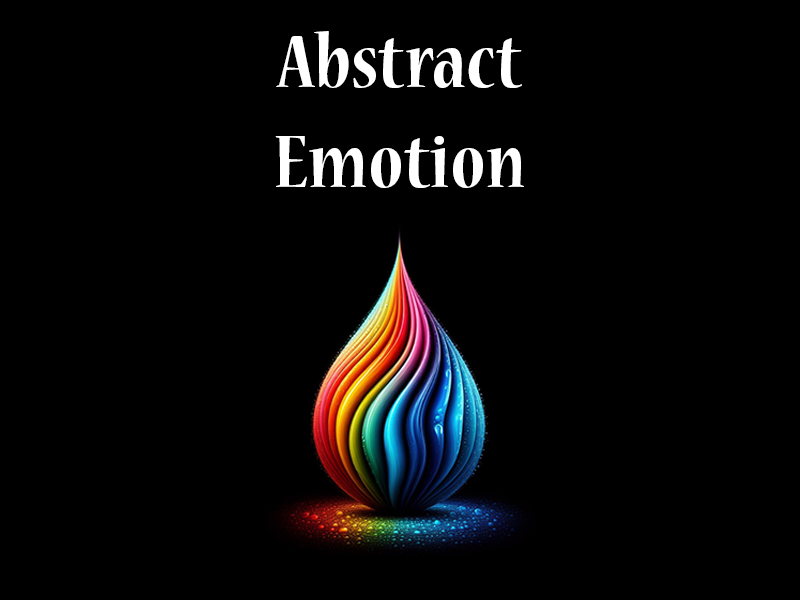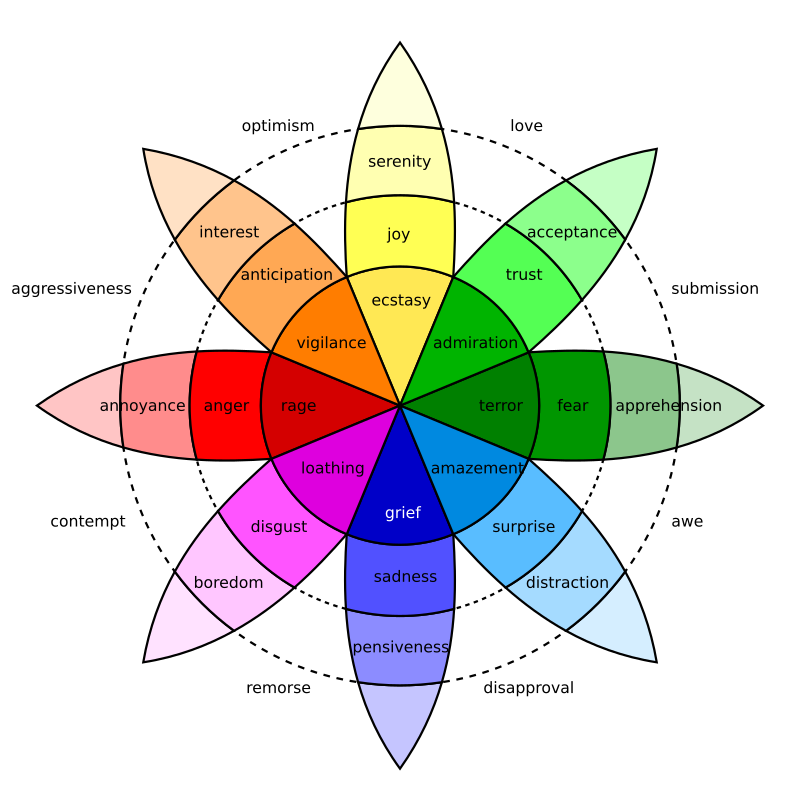
Embark on a voyage into the core of human existence, inviting contemplation upon the universal essence that binds us all. Discover the veiled truths amidst the ordinary, as Abstract Emotion seamlessly weaves logic and beauty together, adorned with captivating illustrations that illuminate the marvels of the human journey.
In this book I posed a simple yet deceptively deep question, “what is it?” But why bother asking? Because artificial intelligence is a reflection of what people think something should be. Naturally, this leads to witty comparison of artificial intelligence versus human logic in both a literal and abstract way. While the premise is straightforward and the book reads more like a dictionary than a research paper, it’s the culmination of over two years of work. A profoundly philosophical idea wrapped in an unassuming book dedicated to all the deep thinkers of the world with a little nonsense to top it off.
Abstract Emotion is sure to be an interesting read for those with a creative mind.
The Necessity Of Abstraction
It’s not just a skill but a key part in the development of young minds. Taking a concept, peeling back the layers, removing the mystery, and solidifying new ideas. Everyone does it for just about everything we think of. Many of the most impressive human accomplishments wouldn’t have been possible without this amazing ability we all share.
The widely known Swedish Psychologist, Jean Piaget, also believed in the importance of abstraction. He states as much in his theory of cognitive development.
- Sensorimotor — In the sensorimotor stage (birth to 2 years old), children learn object permanence, which is the understanding that people and objects still exist even when they’re out of view.
- Preoperational — In the preoperational stage (2-7 years old), children develop symbolic thought, which is when they begin to progress from concrete to abstract thinking. Children in this stage often have imaginary friends.
- Concrete operational — In the concrete operational stage (7-11 years old), children solidify their abstract thinking and begin to understand cause and effect and logical implications of actions.
- Formal operational — In the formal operational stage (adolescence to adulthood), humans plan for the future, think hypothetically, and assume adult responsibilities.
I would argue that planning for the future requires abstraction as well. Meaning that from the moment a person gains the ability to think of themselves as a person, they begin the process of abstracting everything possible. It’s a vital skill and “Abstract Emotion” can help. Check out the links below for more info.
- Development of abstract thinking during childhood and adolescence: The role of rostrolateral prefrontal cortex – National Institutes of Health
- Cognitive Development – National Institutes of Health
- What Is Human Development and Why Is It Important? – Maryville University
- Abstract Thinking: What It Is, Why We Need It, and When to Rein It In – HealthLine
Abstraction Is How Our Brains Play
I just pulled this out of my you know what. There is no conclusive evidence that I could find that supports such an idea but there is ton’s of evidence that supports playing for increased cognitive development and neuroplasticity in people of all ages. Seemingly simple activates can stimulate our minds in surprising ways, especially if it’s new and/or challenging. It’s not hard jumping to the conclusion that brains have to entertain themselves. The only thing our minds have at their disposal are the ideas it comes up with, memories, and incoming stimulation.
Sigmund Freud was an Austrian neurologist and the founder of psychoanalysis believed our dreams have meanings. My question is why are dreams always abstract, nebulous, obscured, or just down right confusing? It’s our brain, why can’t it just have a bullet point presentation loaded up on the projector waiting for us to fall asleep? Probably because that would make too much sense. Kidding. I personally agree with Freud. The dreams are probably an attempt by our brain to abstract situations that were difficult, frustrating, even entertaining, or exhilarating. Brains love abstracting so much that they demand 1/3 of our day to make sure it gets all it’s thrills in.
But if you want some real science backing up the importance of playing, check out the links below.
- Pretend play as abstraction: Implications for early development and beyond – Article from the journal of the International Behavioral Neuroscience Society
- Cognitive benefits of computer games for older adults – National Institutes of Health
- The Importance of Play for Adults – Psych Central
- The Benefits of Play in Cognitive Development – Karyn Purvis Institute of Child Development
Feelings, Emotions, and Behaviors
- Emotion – A complex mental reaction pattern, involving experiential, behavioral and physiological elements.
- Feelings – A feeling is a self-contained, evaluative experience that is independent of the thoughts, sensations, or images that evoke it
- Behavior – An organism’s activities in response to external or internal stimuli, including objectively observable activities, introspectively observable activities, and nonconscious processes.
Doesn’t make a lick of sense huh? That’s okay. I must have read it about ten times for it to sink in. Emotions are internal reactions, feelings are ideas, and behaviors are mental or physical actions. When we put it all together, it means we can overcomplicate anything with the power of emotions. To give you an idea of how complicated and thoroughly researched this topic is, I would suggest this Wikipedia page, “Emotion“.
Plutchik’s wheel of emotions

Above is a illustration of Plutchik’s Wheel Of Emotions from Robert Plutchik, a world renowned professor and psychologist. His theory of emotion proposed a psycho-evolutionary classification approach for general emotional responses. Essentially, emotions are an evolutionary adaption. A hypothetical constructs to maintain a perceived idealized status. All emotions, feeling, and behaviors are tied to the eight primary bipolar emotions: joy, sadness, anger, fear, trust, disgust, surprise and anticipation of the second ring. The inner ring contains the eight psychological defence mechanisms which are manifestations of the eight core emotions. And just incase you needed clarification because I know I did, a defence mechanism is an unconscious psychological operation that functions to protect a person from anxiety-producing thoughts and feelings related to internal conflicts and outer stressors according to the psychoanalytic theory.
- An Introduction and Brief Overview of Psychoanalysis – National Institutes of Health
- Robert Plutchik – Wikipedia
TLDR;
Emotions are complicated and so are the ideas created to try understanding them. That’s why I wrote “Abstract Emotion” to have fun because playing is a key part in the operation of a healthy brain and our brains love to abstract everything. Technically reading is great for cognitive development… but playing is way more fun. Buy my book and you can do both. Win-win.
If you struggle with your surplus of emotions, I have a book for that too. Actually a journal called “Burn Me”. You can find it here.
Buy “Abstract Emotion” below